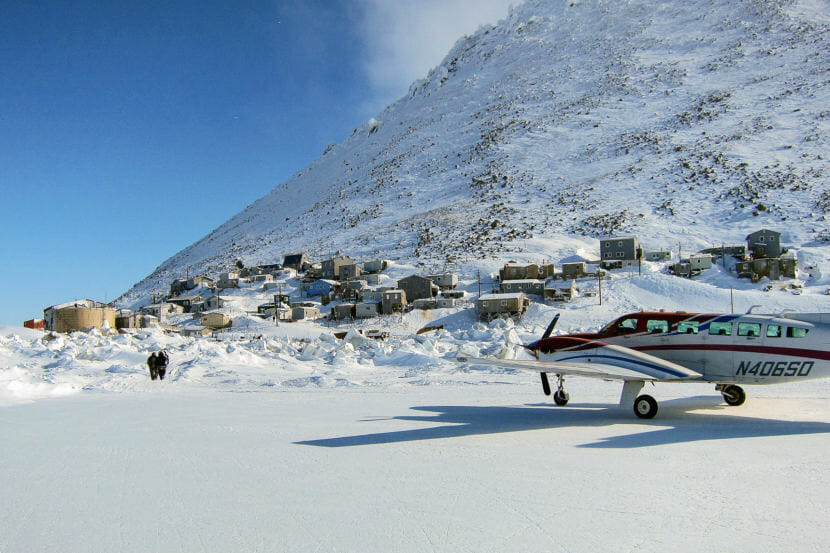
Diomede no longer has to rely on uncertain state funding for airline passenger service. On October 5, 2018, President Trump signed a reauthorization of the Federal Aviation Administration’s Essential Air Service (EAS) program, and for the first time ever, that includes the village of Diomede.
Until this month, Diomede remained ineligible for full EAS service through the Department of Transportation. Residents hope this could mean significant changes for transportation to and from the island.
In 1978, the entire airline industry was de-regulated, causing concern that airlines would flock to larger cities for more profit and leave rural communities without services. John Bioff is an attorney with Kawerak and part of a large team of local organizers and state legislators who worked to have Diomede included in the EAS; he explained the history of the requirements to KNOM.
“The federal essential air service statute was passed to subsidize and make sure that there was going to be air service to these rural communities,” Bioff said. “The way they determined those communities… (was) if they could certify that a community was regularly receiving passenger service as of that date. So, the problem for Diomede was that they weren’t.”
Decades ago, there were no regular passenger flights to the village, so they were determined ineligible. Until 2012, people could only fly to Diomede standby on a mail carrier if there was enough room among the parcels and letters.
There are currently three passenger flights a month to the island community, thanks to the Air Transportation to Non-Eligible Places program, or ATNEP. That program has 50% federal funding, and the other 50% comes from the state, meaning that its security is dependent on state politics and budget. According to Bioff, the amount given by the state has remained stagnant since 2012, and the federal government will only match that.
Francis Ozenna is the Tribal Coordinator of the Native village of Diomede and explains the difficulty in having only three flights.
“We see transportation as one of the hardest experiences when it came to dealing with some of the needs we need,” Ozenna said, “because it involves long-term (consequences): if you’re off Diomede, it’s harder to get back. It deals with… the doctor, eye care, dental, all the other departments.”
Not only does that include all passenger and medical traffic, but social services, law enforcement, and crime investigation, too. Bioff, the attorney, thinks that is reason enough to have more trips to the island community.
“It’s not nearly adequate to have the amount of trips that they’re having now,” Bioff said. “So we’re going to push, on their behalf, to get more trips from the Department of Transportation and increase in subsidy for that reason.”
Diomede’s contract with Pathfinder Aviation is ending later this year, and as of now, it is unknown if that contract will be renewed or how it will be affected by EAS. Ozenna expressed positive sentiments about transportation for the community.
“Now that we have essential air service and are in our third year with them [Pathfinder], we are satisfied with transportation. We’d like to see more of it… that would be good,” Ozenna said.
The effort to secure the community’s eligibility in the reauthorized EAS program included the efforts of Kawerak, the village of Diomede, Senators Murkowski and Sullivan, Congressman Young, Senator Donny Olson, Representative Neil Foster, and Governor Walker.